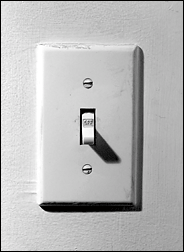
|
OP-ED CONTRIBUTOR
Spring Forward Faster
By DAVID PRERAU

Published: March 31, 2005
 |


John Fulbrook
|
|
|
|

|
1. |
|
2. |
|
3. |
|
4. |
|
5. |
|
|
|
|
|
|
|
 rookline, Mass. rookline, Mass.
AS
we once again "spring forward" and turn our clocks ahead on Sunday, the
start of daylight saving time, there's no better time to think about
giving ourselves more daylight every year. Extending daylight time
would give us considerable energy savings in an era of record oil
prices, as well as many other benefits. Daylight saving time,
of course, has its roots in conservation: Benjamin Franklin suggested
it as a way to save on candles, and it was used in both world wars to
save energy for the military effort. By 1966, most areas of the country
had permanently adopted it, and Congress standardized the daylight time
period to run from the last Sunday in April to the last Sunday in
October. Twenty years later, Congress moved the starting date to the
first Sunday in April. Studies in many countries have found
that daylight saving time curbs energy consumption and reduces traffic
fatalities. While I was a researcher at the Transportation Department
in the 1970's, we did a study that found that under daylight time in
spring and fall, electrical energy use fell by about 1 percent, the
equivalent today of roughly three billion kilowatt-hours per month,
while the reduction in traffic accidents saved 25 lives and averted
1,000 injuries each month. Crime also decreased. These results
derive directly from the shift of daylight from morning to evening. For
example, many people sleep through morning sunlight and then depend on
electric lighting after the sun sets. Even taking commuters into
account, far more people travel in the evening than in the morning, and
this, when combined with poor visibility, leads to more traffic
accidents. And more crimes in which darkness is a factor, like
muggings, take place after dusk than before dawn. Under the
present law we have daylight time in October but not in March, even
though the sun rises at similar times in both months. The European
Union starts daylight time on the last Sunday in March, with few
complaints. Adding one spring week of daylight time would synchronize
us with Europe. Adding two weeks in the spring would double the benefit
while not making a single sunrise later than those we already
experience in October, thus reducing concerns about dark mornings for
farmers and children heading for school. We should also
consider adding a week of daylight time in the fall. Daylight time now
always ends just before Halloween - sometimes, as last year, on
Halloween morning. Alarmingly, children's pedestrian deaths are four
times higher on Halloween than on any other night of the year, and
daylight time would provide another hour of light for young
trick-or-treaters. Today, daylight saving time has been adopted
by more than one billion people in about 70 countries. At a time when
energy conservation is increasingly important and oil prices are
skyrocketing, additional daylight time in the United States can save us
energy while also preventing traffic accidents, cutting crime, helping
trick-or-treaters safely across the street, and providing millions of
gardeners, softball players and backyard barbecuers an additional hour
in the sun.
David Prerau is the author of "Seize the Daylight: The Curious and Contentious Story of Daylight Saving Time."
|